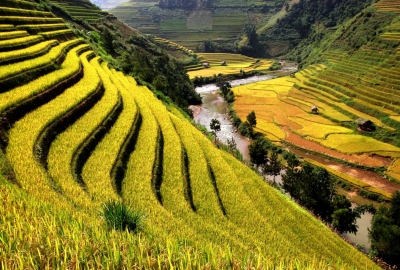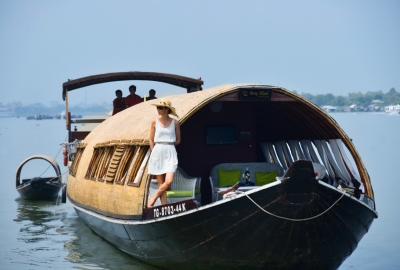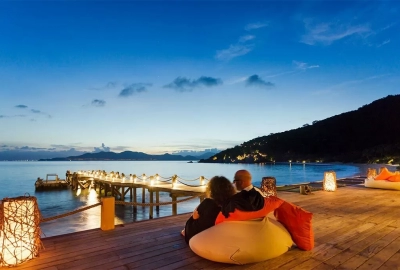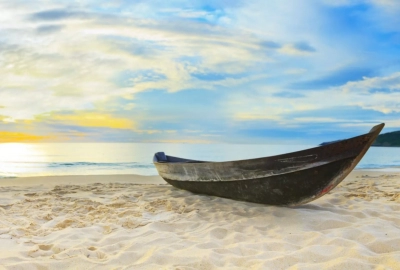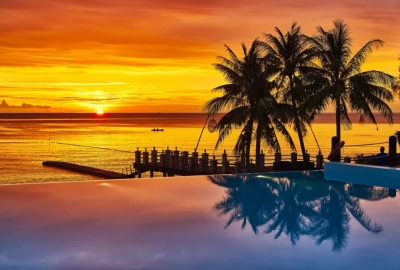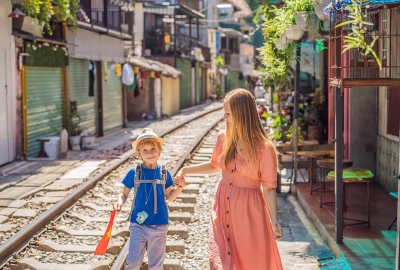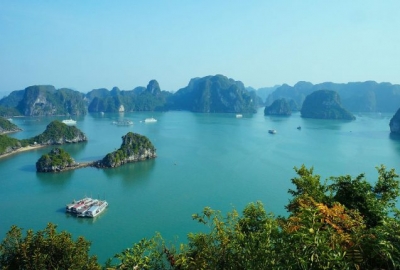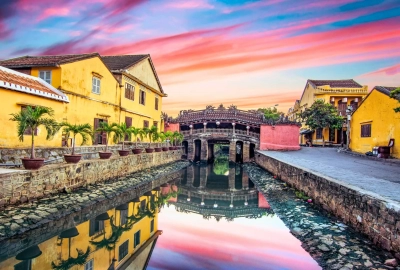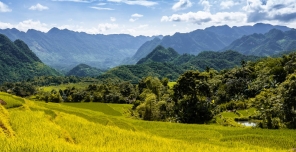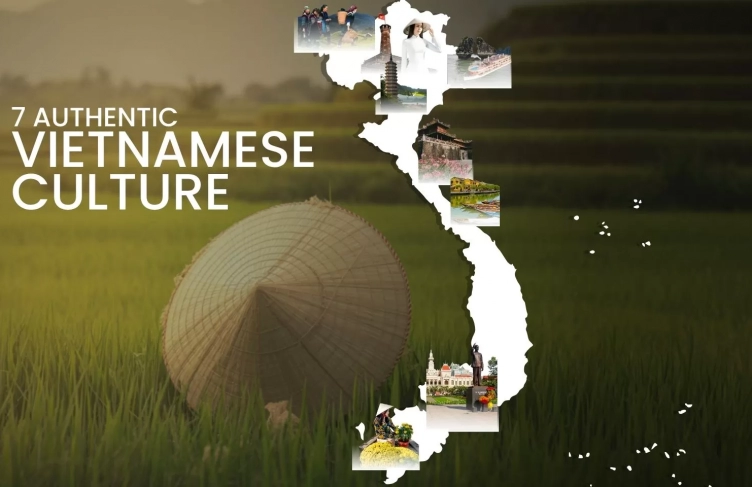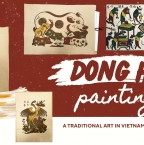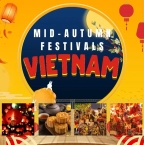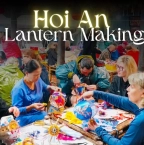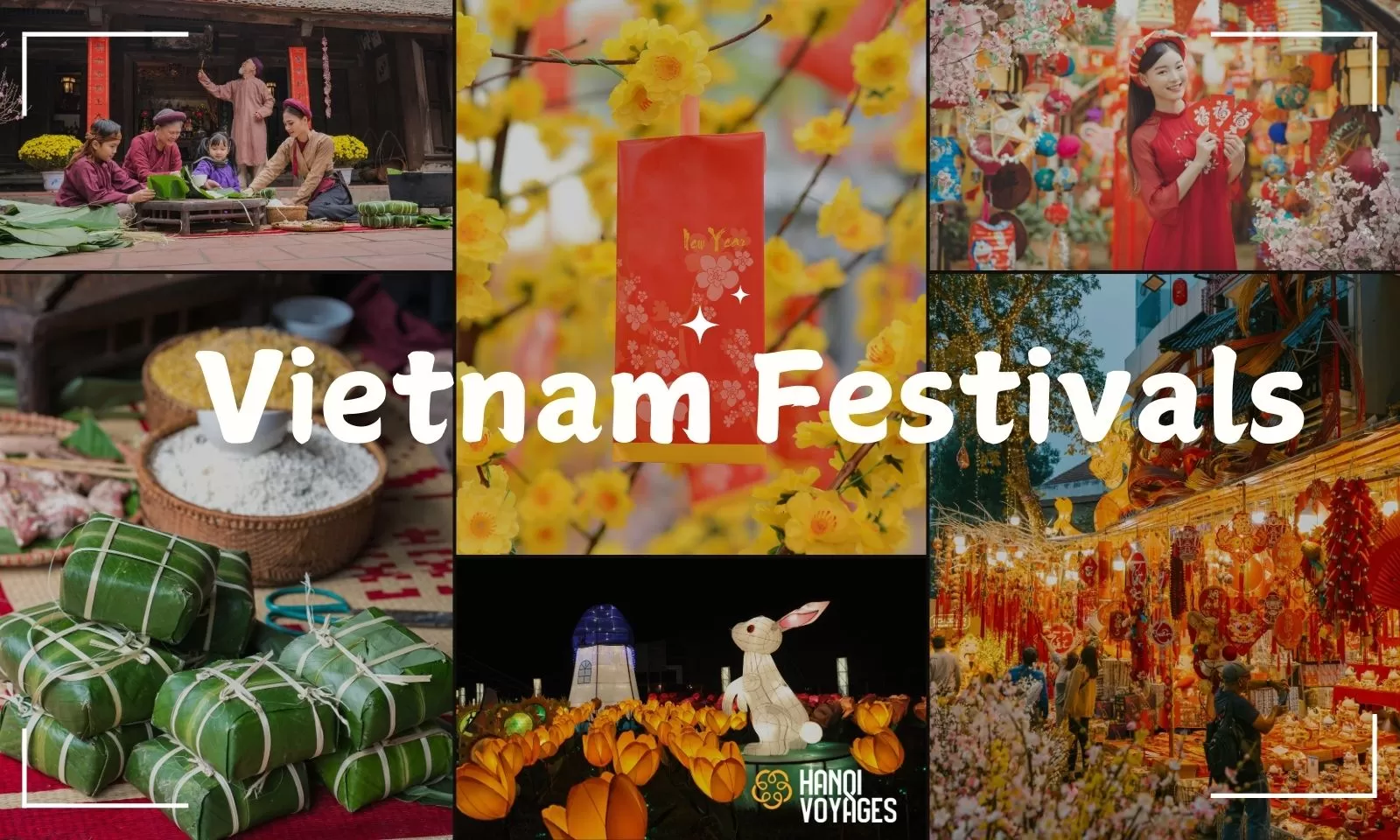
Top 9 Vietnam festivals: Must-see cultural celebrations & events
Explore the top 9 Vietnam festivals that showcase the country's rich culture and traditions. From Tet to Mid-Autumn Festival, experience colorful parades, unique rituals and festive atmospheres that make Vietnam’s celebrations truly unforgettable.

Vietnam is a country rich in traditions and its festivals are some of the most lively in Southeast Asia. Whether it’s a national holiday like Tet or a local event like the Hue Festival, each celebration provides a unique glimpse into Vietnamese culture. These festivals are deeply rooted in history, spirituality and community, making them a fascinating experience for travelers.
If you’re traveling to Vietnam during festivals, this guide will help you explore the most exciting cultural events. From ancient traditions to modern celebrations, here are the top 9 Vietnam festivals that you shouldn’t miss.
Table of Contents
- Top 9 Vietnam festivals you shouldn’t miss
- Tet Holiday - The most important festival in Vietnam
- Mid-Autumn Festival - A celebration for families and children
- Hue Festival - A grand cultural event
- Perfume Pagoda Festival - A pilgrimage tradition
- Hung Kings' Temple Festival - Honoring national ancestors
- Hoi An Lantern Festival - A colorful festival
- Lim Festival - A celebration of Quan Ho folk songs
- Giong Festival - A heroic tradition
- Whale Festival - A unique coastal celebration
- Traditional cuisine at Vietnam festivals
- Travel tips for experiencing Vietnam festivals
Top 9 Vietnam festivals you shouldn’t miss
Traditional festivals in Vietnam are more than just celebrations - they are a window into the country’s history and traditions. If you're in Vietnam, don’t miss the chance to experience these lively and meaningful events firsthand. Here are 9 festivals we highly recommend you should visit.
Tet Holiday - The most important festival in Vietnam
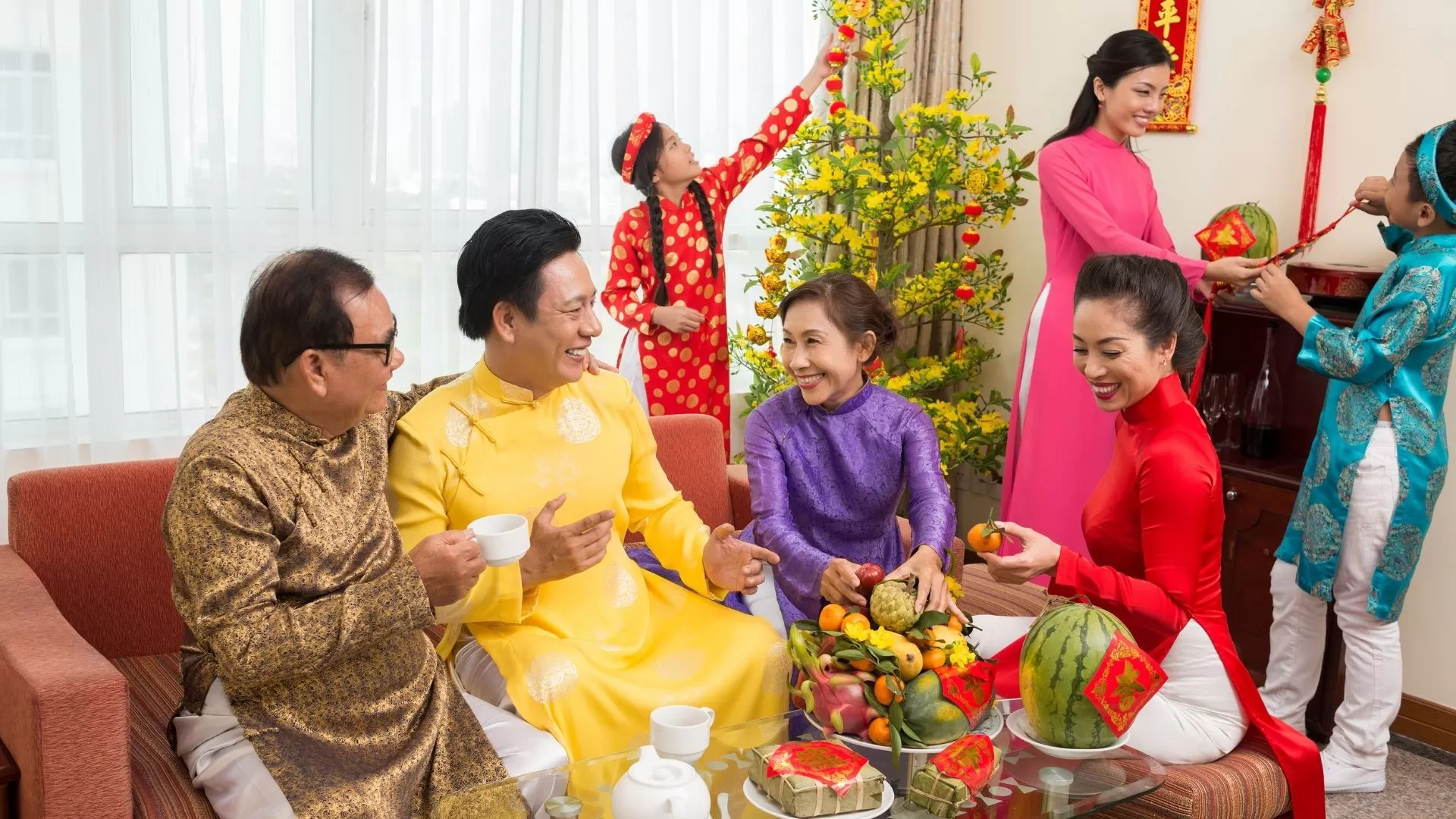
Location: Nationwide
Time: January or February (1st-3rd day of the lunar new year)
Tet, or the Lunar New Year, is the biggest and most widely celebrated of all Vietnam festivals. It marks the start of a new year and is a time for family reunions, honoring ancestors and welcoming good fortune. The atmosphere is filled with joy as people clean their homes, decorate with red banners and prepare festive meals.
During Tet, major cities like Hanoi and Ho Chi Minh City light up with fireworks, flower markets and dragon dances. In rural areas, traditional customs such as lion dancing, temple visits and lucky money create a warm and festive mood. Visitors can also enjoy Vietnam traditional festival cuisine, including banh chung (square sticky rice cake) and pickled vegetables.
Mid-Autumn Festival - A celebration for families and children
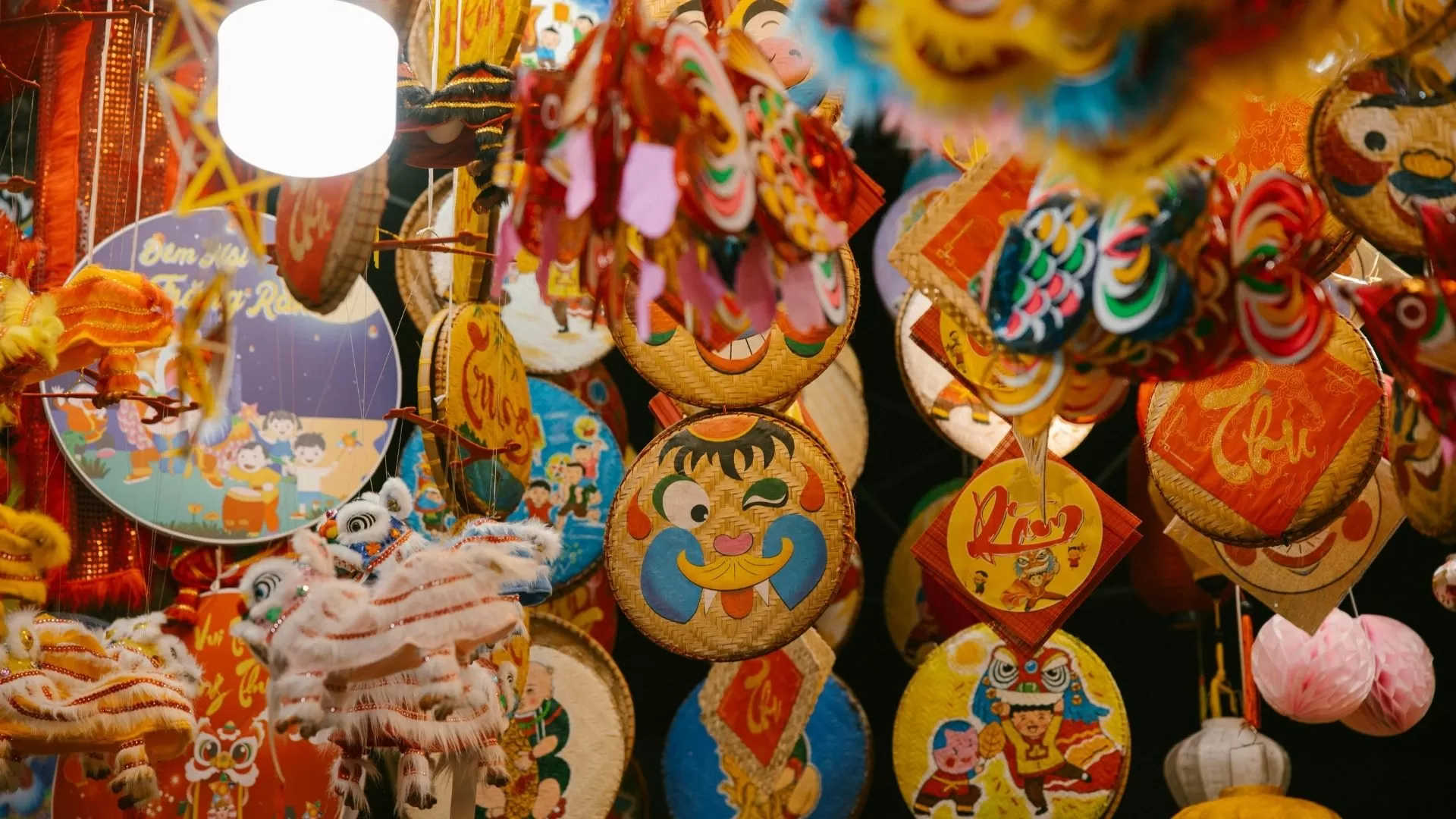
Location: Nationwide (especially Hanoi and Hoi An)
Time: 15th day of the 8th lunar month
The Mid-Autumn Festival, also known as the Full Moon Festival, is one of the most beloved traditional festivals in Vietnam. This festival is particularly special for children, who parade the streets with colorful lanterns while enjoying lion and dragon dances.
Hoi An is one of the best places to experience this festival, as its lantern-lit streets create a magical ambiance. Families gather to admire the full moon and share mooncakes, a signature treat of the holiday. The festival also symbolizes family togetherness and gratitude.
Hue Festival - A grand cultural event
Location: Hue City, Thua Thien Hue
Time: April or June (every even-numbered year)
The Hue Festival is one of the must-experience festivals in Vietnam, featuring a grand showcase of Vietnamese heritage. This multi-day event includes traditional music performances, calligraphy exhibitions and street parades.
One of the highlights is the reenactment of Nguyen Dynasty royal ceremonies, giving visitors a chance to witness Vietnam’s imperial history. Art lovers can enjoy traditional theater, poetry readings and contemporary dance performances, making this festival a perfect blend of old and new.
Perfume Pagoda Festival - A pilgrimage tradition
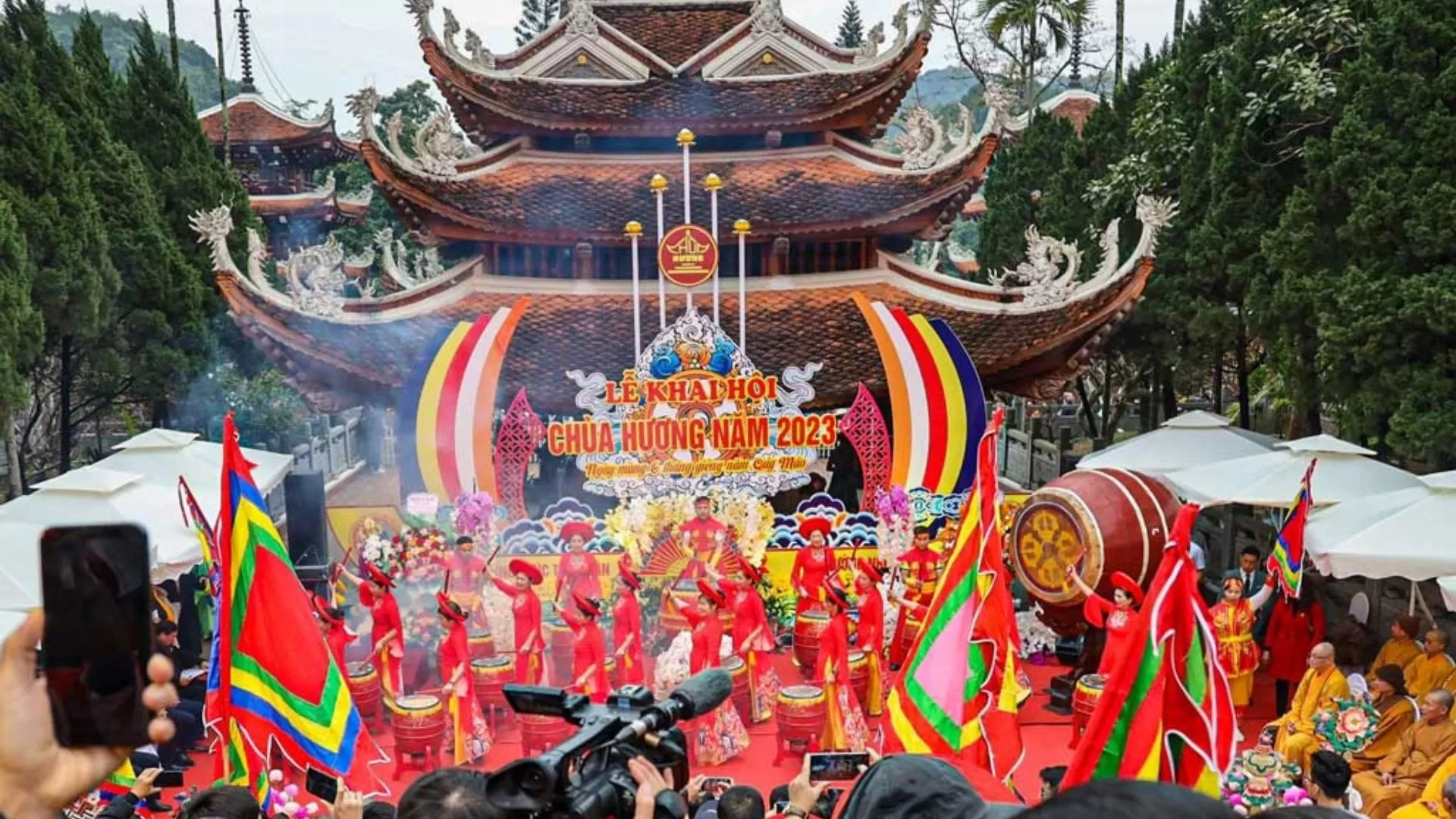
Location: Perfume Pagoda, My Duc, Hanoi
Time: From the 6th day of the 1st lunar month to March
As one of the largest religious Vietnam festivals, the Perfume Pagoda Festival attracts thousands of Buddhist pilgrims. To reach the Perfume Pagoda, visitors take a scenic boat ride along the Yen Stream, followed by a hike up the mountain.
Pilgrims visit the pagoda to pray for prosperity, good health and happiness. The spiritual energy of the festival, combined with the breathtaking natural scenery, makes it a truly unforgettable experience.
Hung Kings' Temple Festival - Honoring national ancestors
Location: Hung Kings' Temple, Phu Tho Province
Time: 10th day of the 3rd lunar month
This is one of the most important traditional festivals in Vietnam, paying tribute to the legendary Hung Kings, who are considered the founders of the nation. People from all over Vietnam travel to Phu Tho to participate in solemn ceremonies, incense offerings and cultural performances.
The festival is a symbol of national unity, with parades, folk games and traditional martial arts displays. If you want to understand Vietnam’s deep respect for its ancestors, this festival is a must-see.
Hoi An Lantern Festival - A colorful festival
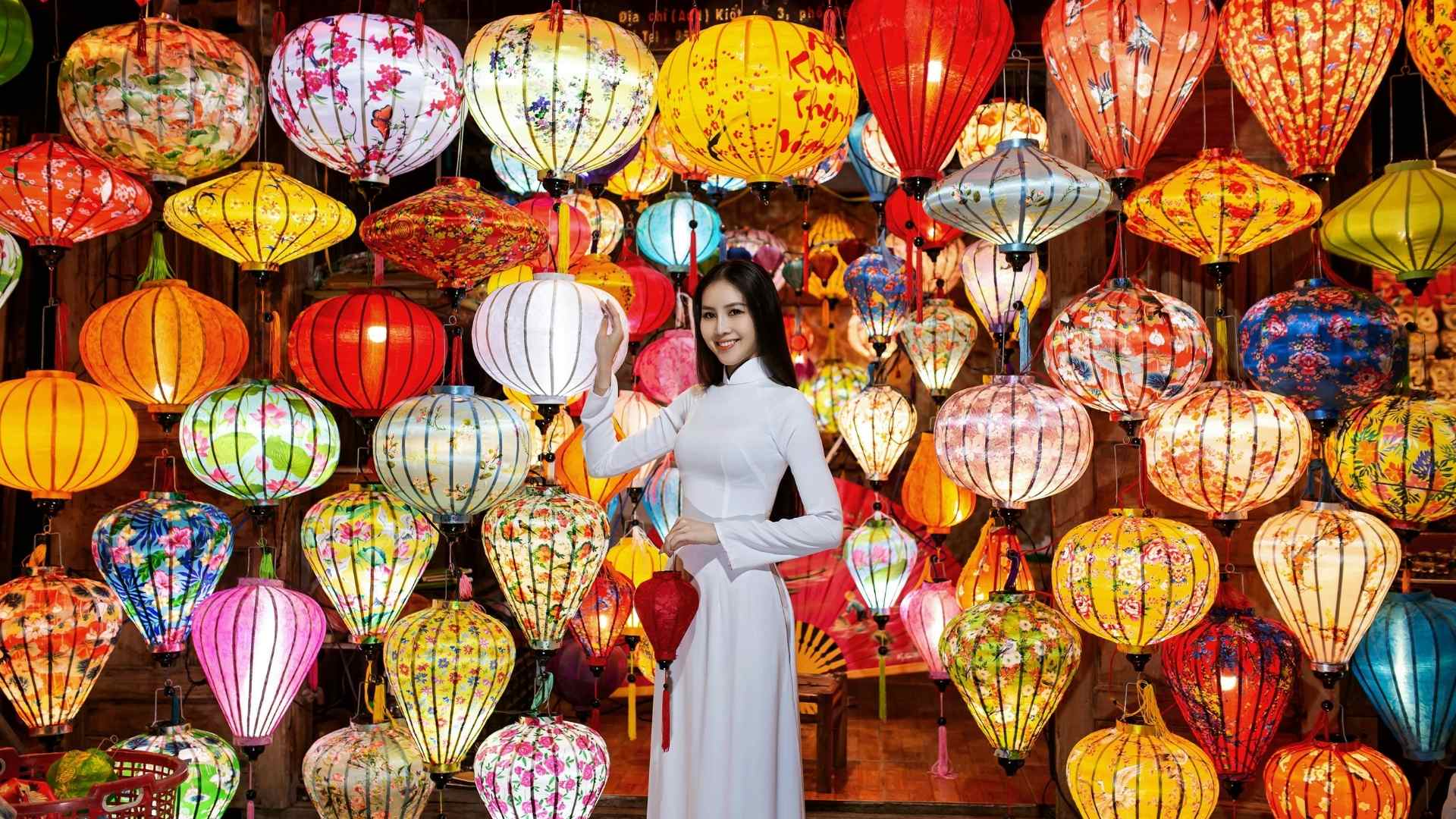
Location: Hoi An, Quang Nam
Time: 14th day of every lunar month
Hoi An’s Lantern Festival is one of the most visually stunning Vietnam festivals. On this night, the ancient town turns off all electric lights and the streets are illuminated by thousands of colorful lanterns. Visitors can buy paper lanterns and release them into the river while making wishes.
Apart from the attractive scenery, visitors can explore Hoi An’s traditional market, enjoy folk music performances and savor Vietnam traditional festival cuisine like cao lau (Hoi An noodles).
Lim Festival - A celebration of Quan Ho folk songs
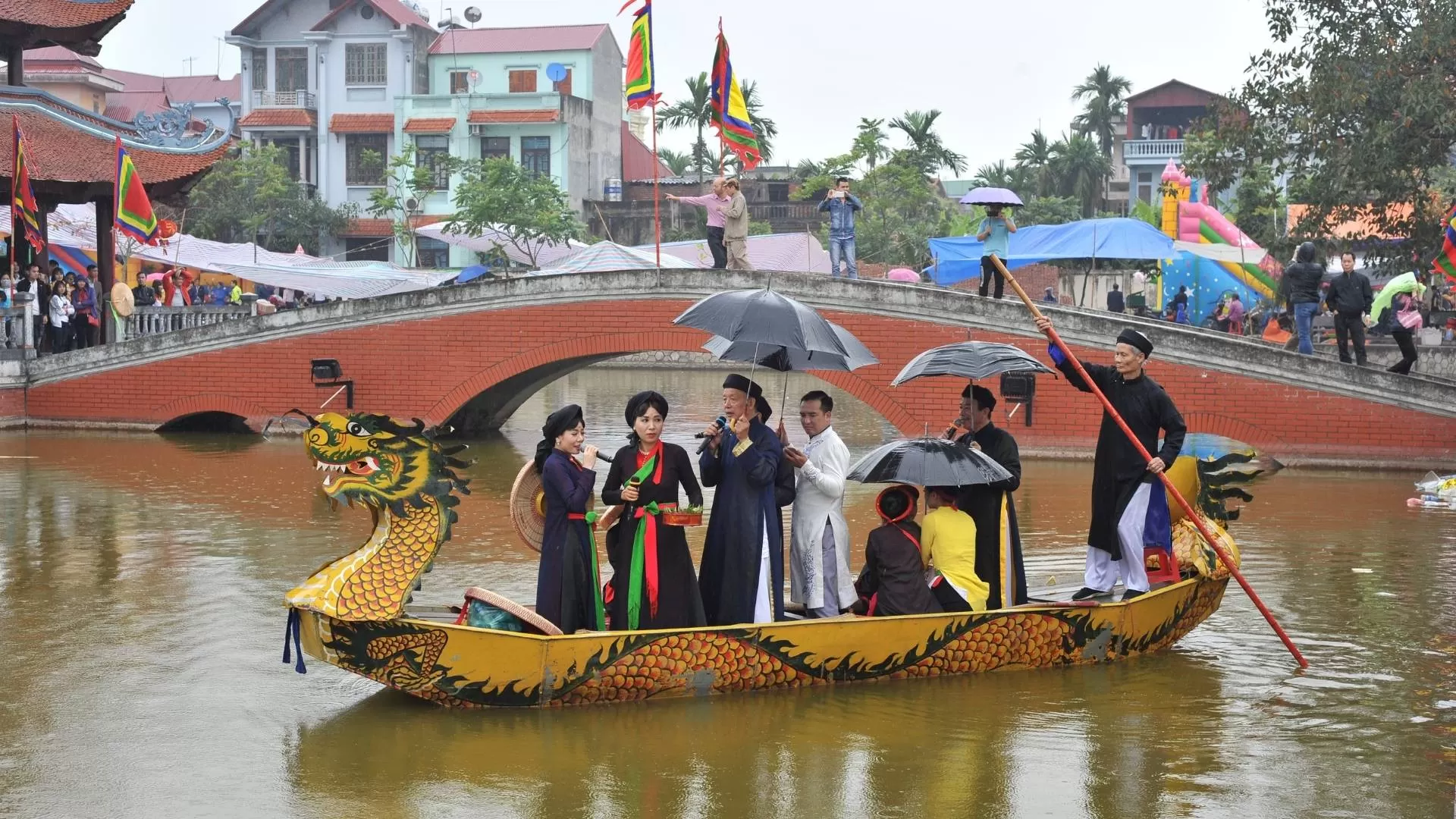
Location: Tien Du District, Bac Ninh Province
Time: 12th-13th day of the 1st lunar month
The Lim Festival is dedicated to Quan Ho folk singing, a unique form of folk singing recognized by UNESCO. This festival is a vibrant showcase of Vietnam’s musical traditions, featuring performances by singers dressed in traditional costumes as they exchange love duets. These performances take place on boats, in communal houses and even on hillsides, creating a poetic atmosphere.
The festival also includes human chess competitions, weaving demonstrations and poetry recitals. For those interested in Vietnam’s artistic heritage, this is one of the must-experience festivals in the country.
Giong Festival - A heroic tradition
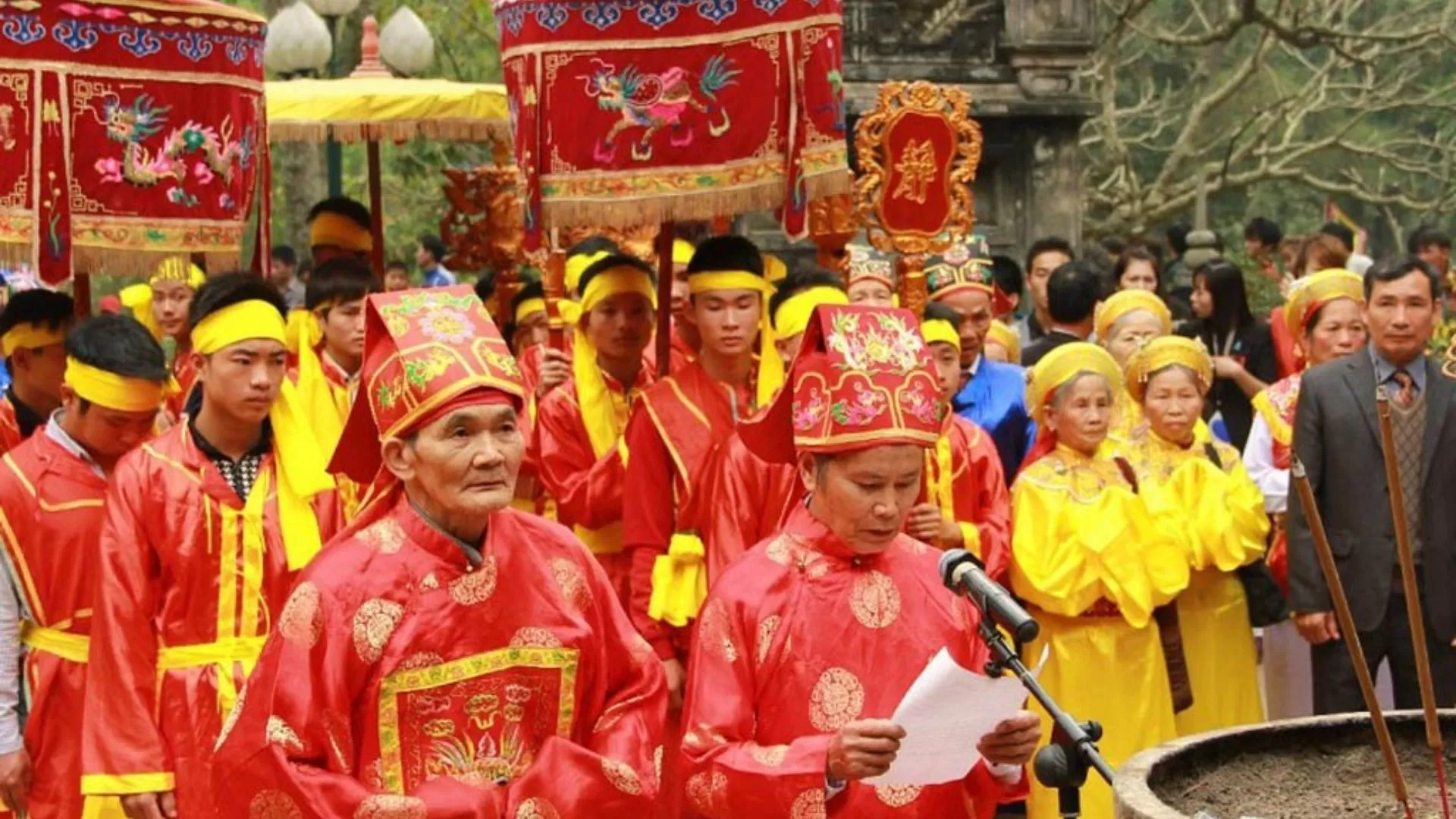
Location: Soc Temple (Soc Son, Hanoi) and Phu Dong Temple (Gia Lam, Hanoi)
Time: 7th-9th day of the 4th lunar month (Phu Dong Temple) & 6th-8th day of the 4th lunar month (Soc Temple)
The Giong Festival honors Saint Giong, a legendary hero in Vietnamese mythology. The highlight of the festival is the dramatic battle reenactment, where villagers dress as ancient warriors, carrying bamboo weapons and performing ritualistic combat. Accompanied by the sounds of drums and gongs, this reenactment symbolizes Vietnam’s resilient spirit and historical pride. Offerings of bamboo flowers, betel leaves and rice cakes are made to honor Saint Giong.
This event is not only a cultural experience but also a celebration of Vietnam’s deep historical pride.
You can experience more traditional festivals in Hanoi with: Top 6 Traditional Festivals Should Visit in Hanoi
Whale Festival - A unique coastal celebration
Location: Coastal fishing villages (Binh Thuan, Nha Trang, Vung Tau)
Time: Mid-March of the lunar calendar every year
The Whale Festival, or "Lễ hội Cá Ông," is one of the most distinctive Vietnam festivals celebrated by coastal fishing communities. It is held to honor Cá Ông (the Whale God), whom fishermen believe protects them from storms and brings good fortune. The festival begins with a solemn ceremony at whale temples, where offerings of incense and seafood are made. Afterward, the event becomes more vibrant with boat races, lion dances and a grand procession carrying a whale effigy through the village before heading to the sea.
Traditional cuisine at Vietnam festivals
Food plays an essential role in Vietnam festivals, offering a unique way to experience the country’s culture. Each festival comes with its own signature dishes, deeply rooted in tradition and meaning. Here are some must-try festival foods:
Banh Chung & Banh Tet
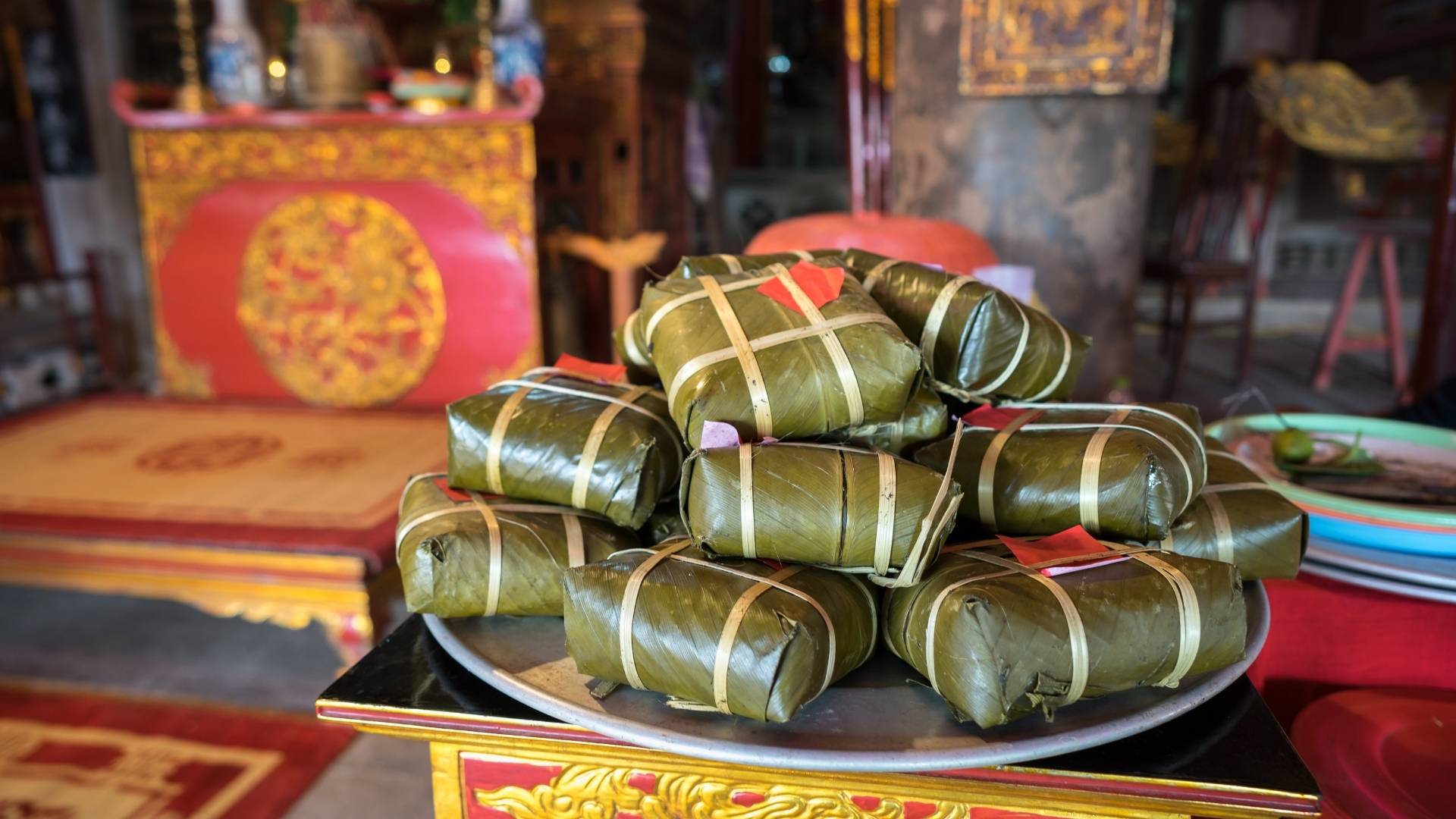
Banh Chung and Banh Tet are iconic dishes for the Vietnamese Lunar New Year. Banh Chung is a square-shaped sticky rice cake filled with pork and mung beans, wrapped in banana leaves, while Banh Tet is its cylindrical counterpart, more popular in Southern Vietnam. Both cakes embody the essence of Vietnamese tradition and are a must-try to fully experience the festive flavors of this special occasion.
Enjoy more traditional Tet food with Best Tet Cuisine Of Three Regions In Vietnam
Mooncakes
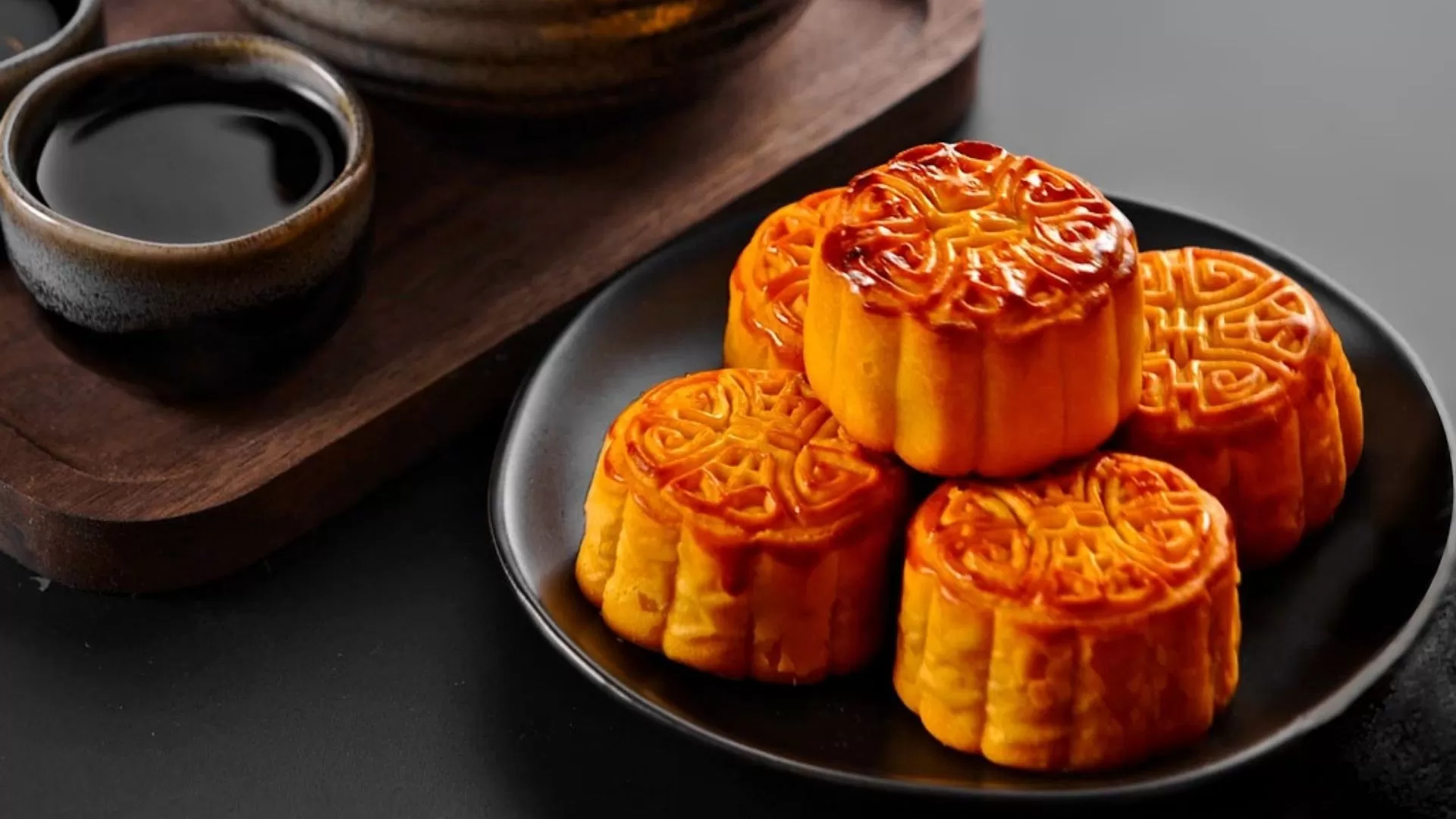
Mooncakes are the signature treat of the Mid-Autumn Festival.These round pastries come with various fillings like lotus seed paste, salted egg yolk and mixed nuts, representing family reunion and prosperity.
Com Lang Vong
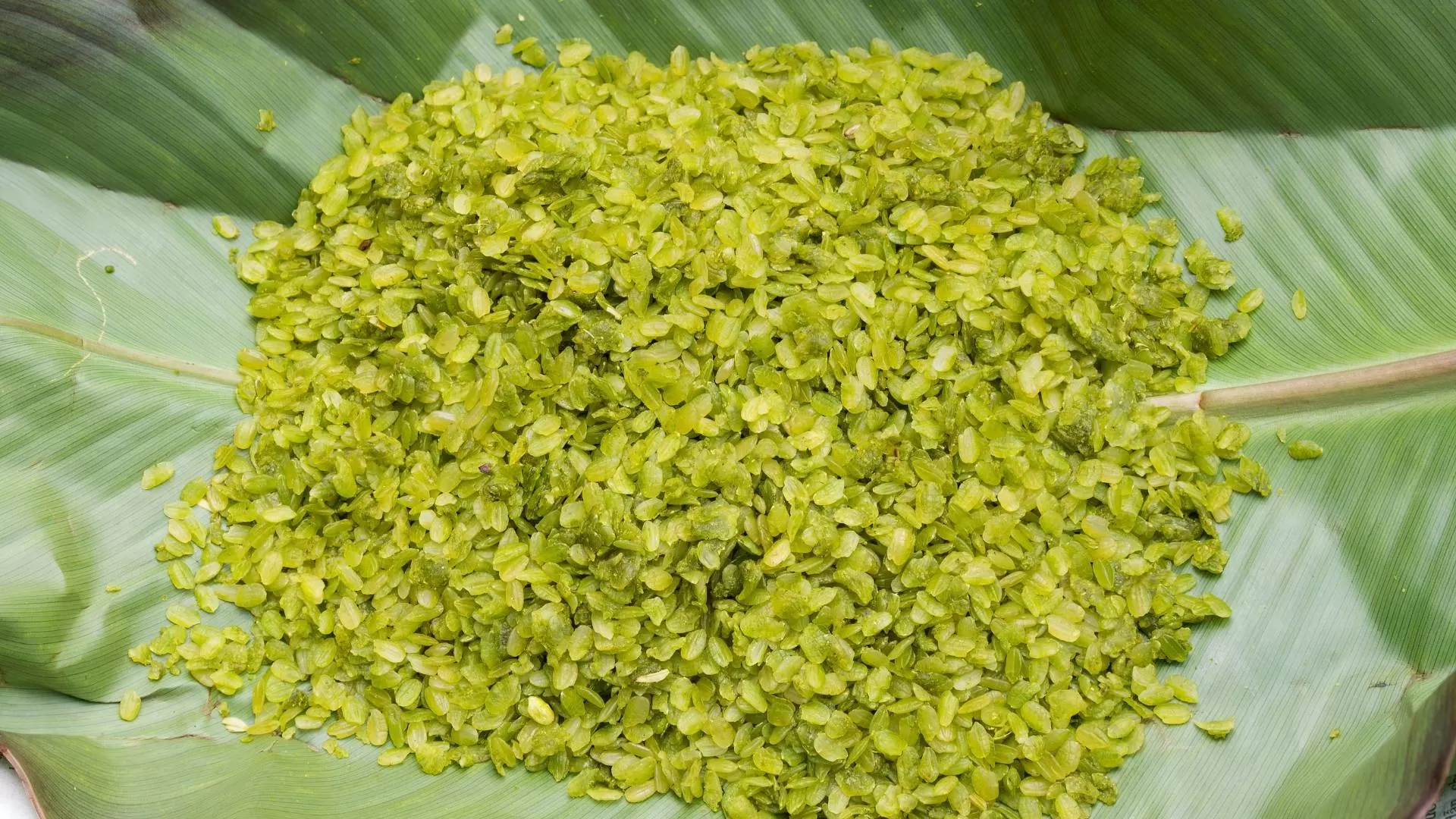
Com Lang Vong is a fragrant snack made from young rice grains, lightly roasted and wrapped in lotus leaves. Often enjoyed with ripe bananas, it is a signature delicacy of Hanoi during the Mid-Autumn Festival.
Banh Day
Banh Day is a soft, white rice cake with a chewy texture, often eaten during the Hung Kings’ Festival. It represents the sky in Vietnamese legend and is typically served with pork patties or mung bean filling.
Bun Bo Hue
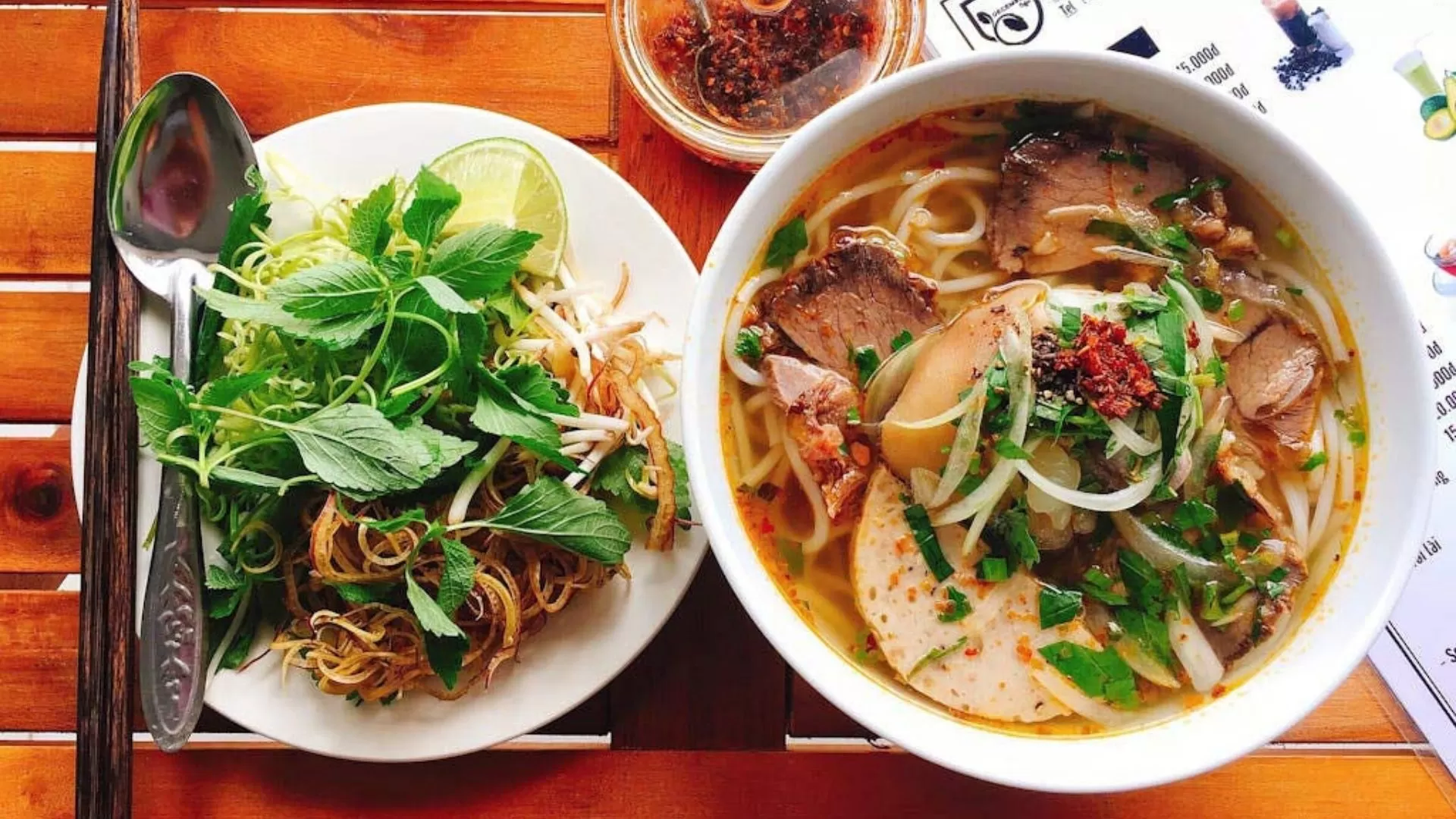
Bun Bo Hue is a famous spicy beef noodle soup from Hue, often enjoyed during the Hue Festival. The broth is flavored with lemongrass and shrimp paste, served with thick noodles and fresh herbs. It is a must-try for visitors wanting to explore the unique flavors of Central Vietnam.
Xoi Ngu Sac
Xoi Ngu Sac is a vibrant sticky rice dish made in five colors - red, yellow, green, purple and white - symbolizing prosperity and harmony. It is commonly found at traditional celebrations in Northern Vietnam.
Hanoi Voyages offers tours throughout Vietnam, giving you the chance to enjoy many exciting festivals |
At Hanoi Voyages, we offer tailored tours for your perfect trip to Vietnam. Choose an idea or contact us to plan your trip together!
If you want to design a trip that perfectly suits your preferences, contact us now to begin planning your Vietnam trip! |
Travel tips for experiencing Vietnam festivals
Attending exciting festivals in Vietnam is a great way to immerse yourself in the country’s rich traditions, but it requires some preparation to ensure a smooth and enjoyable experience. Here are some essential travel tips:
Plan your trip in advance
Many festivals attract large crowds, so booking flights, hotels and transportation early is crucial. Cities like Hanoi, Hue and Hoi An see a surge in visitors during major celebrations, leading to limited accommodation options and higher prices.
Be prepared for crowds
Major festivals like Tet and the Mid-Autumn Festival can be extremely busy. Arrive early at popular event locations to secure a good spot and be patient when navigating through crowded areas.
Dress comfortably and respectfully
Some festivals in Vietnam take place at temples or pagodas, so wear modest clothing that covers your shoulders and knees. Comfortable footwear is also essential, as you may need to walk long distances or stand for extended periods.
Respect local customs
Some festivals have religious or spiritual significance, so always follow local customs. For example, when visiting temples during Buddha’s Birthday or Hung Kings’ Festival, avoid loud conversations and take off your shoes before entering sacred areas.
Keep your belongings secure
Crowded festivals can attract pickpockets, so keep your valuables safe. Use a crossbody bag with a zipper and avoid carrying large amounts of cash. If possible, leave important documents like your passport in a hotel safe.
Use public transportation when possible
Traffic can be chaotic during festivals, especially in big cities. Instead of taxis or motorbikes, consider using public transport, walking, or renting a bicycle to navigate crowded streets more easily.
Attending the traditional Vietnam festivals allows you to connect deeply with the country’s heritage and local traditions. These celebrations bring together spirituality, history and community in a truly immersive way, giving you a deeper appreciation of Vietnam's heritage.
Book your cultural getaway with Hanoi Voyages today!
Dream about your trip to Asia, in private
We are here to make it happen with youFREE QUOTE, WITHOUT OBLIGATION

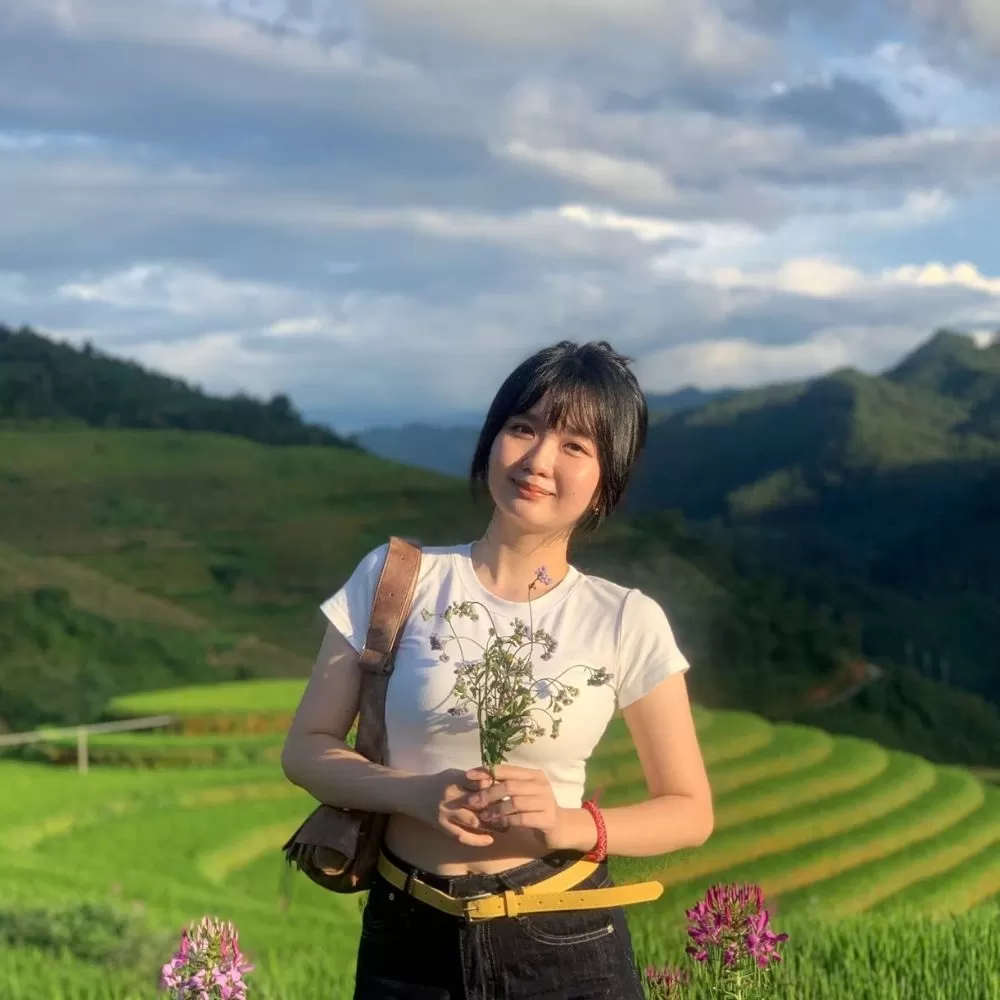





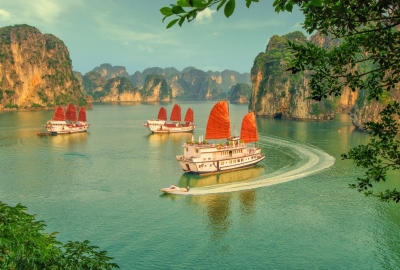
.webp)
